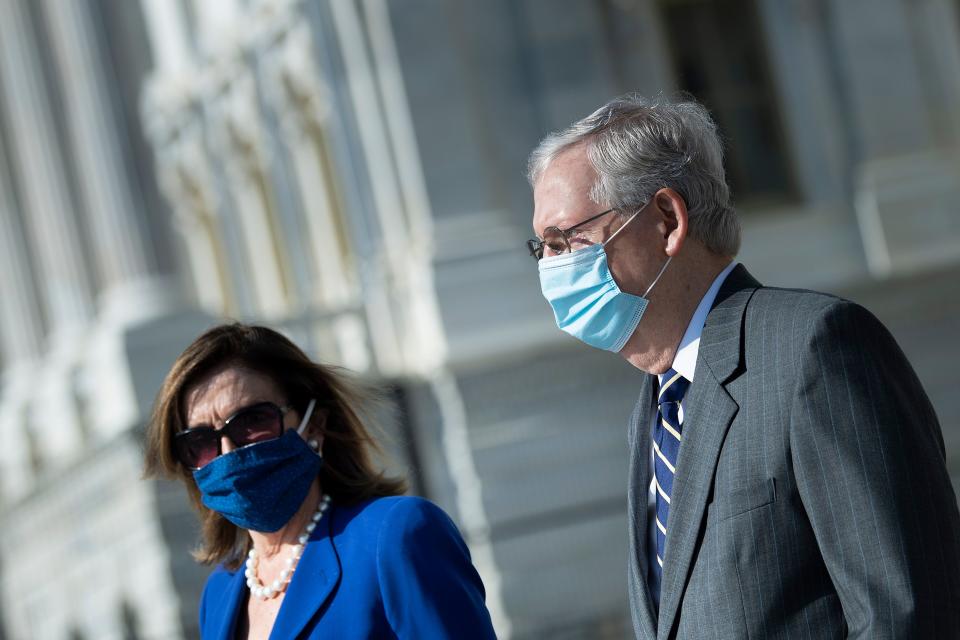American savings accounts are now ‘steadily declining’ as coronavirus effects linger
After weathering the early stages of the recession, poorer Americans are now losing what financial security they had, with the most difficult months yet to come, according to a non-profit that works with lower earners.
“Things are looking very frightening for working families in the U.S. right now.” said Leigh Phillips, the president and CEO of SaverLife, during an interview on Yahoo Finance on Wednesday. “Over the last few months, we have seen savings balances steadily declining and deposits into savings steadily declining.”
Factors like the drying up of government assistance and new burdens — such as school closings and continuing under-employment — won’t make things any easier, Phillips said.
The assessment is based on a new report that compiles the results of six months of surveys and interviews of SaverLife’s members. Among the 380,000 members, the median income is just $25,000; 84% are parents, 81% are female, and 60% are non-white.

‘A lot of volatility’
It was a different story for these Americans earlier in the pandemic.
Saverlife found its members were able to get through the early “state of panic and confusion” by leaning on things like existing savings and government assistance, Phillips said. Another factor that helped during the early stages of the crisis, according to the surveys, was the fact that tax refunds and earned income tax credits had arrived just before COVID-19 did.
SaverLife’s finding match up with some of the trends across the overall U.S. economy. Even as the GDP shrank earlier this year, American’s income actually grew during the early stages of the pandemic.
“Why?” asked Marc Goldwein from the Committee for a Responsible Federal Budget during a June briefing “the money that we've spent on unemployment benefits and on [stimulus checks] has more than made up for it.”
The SaverLife report found three stages of this recession so far. After the initial panic, the second stage was optimism around Memorial Day in May as shelter-in-place orders began to lift. Restaurant spending among SaverLife members spiked and more members reported being satisfied with their financial situation at that time.
But that optimism faded as COVID-19 cases surged. Now, “savings are starting to wane,” Phillips said. About a quarter of SaverLife members are currently earning less than before the pandemic. Nearly all of them say they are set to deplete their savings in the coming months unless something changes in their financial situation.
“What we see with our clients is a lot of volatility” Phillips said, noting that her members often “don’t get the same hours at work every two weeks like maybe some of us do.”
‘A financial cliff’ ahead?

It remains unclear whether Washington will step in with more assistance in the near future. House Speaker Nancy Pelosi and Treasury Secretary Steven Mnuchin spoke on Tuesday about the stalled stimulus negotiations. Afterwards, the Speaker underlined how both sides “continue to have serious differences.”
Phillips warned that her data only runs through the end of July and could get worse as more comes in. The government’s enhanced unemployment benefits of $600 per week ran out on July 31. Now, Phillips said, her members could be facing a “financial cliff.”
Phillips appeared as part of Yahoo Finance’s ongoing partnership with the Funding our Future campaign, a group of organizations advocating for increased retirement security for Americans.
The SaverLife platform uses games and financial inducements to encourage good savings habits. Members earn “points” when they do something financially prudent that they then can redeem for digital prizes or to play games that offer a cash prize.
Ben Werschkul is a producer for Yahoo Finance in Washington, DC.
Read more:
Why a ‘vast majority’ of Americans are not getting the most out of Social Security
One way to reduce the racial wealth gap is with more 401(k)s: Expert
Report lays out how the gender pay gap becomes a retirement wealth gap
Read the latest financial and business news from Yahoo Finance
Follow Yahoo Finance on Twitter, Facebook, Instagram, Flipboard, LinkedIn, YouTube, and reddit.

 money
money 
